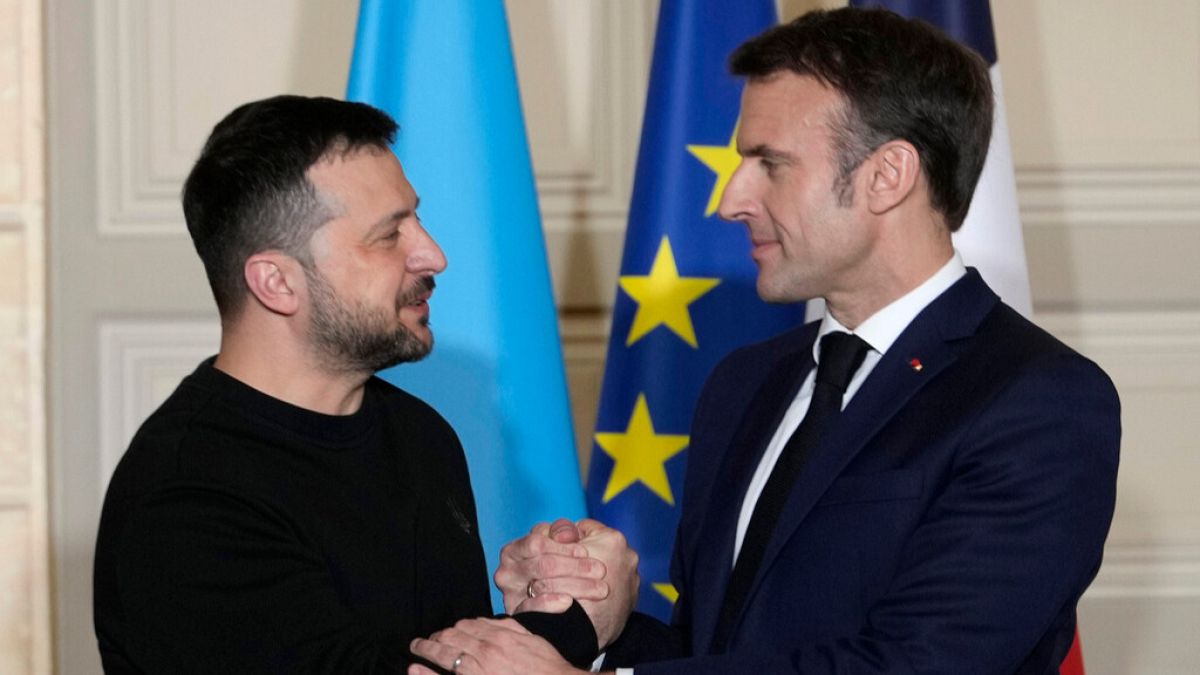Russian propagandists accused Ukrainian President Volodymyr Zelenskyy of attempting to assassinate the French president – but it turns out the video segment aired on France 24 is a deep fake generated by artificial intelligence.
French President Emmanuel Macron had to postpone his visit to Ukraine last week, citing security reasons without giving more detail.
Very quickly, rumours started to swirl on social media. According to a video segment allegedly aired on the international news channel France 24, the reason why Emmanuel Macron cancelled his trip is because Kyiv was preparing to assassinate the French leader.
The video looks like it was show by a France 24 viewer and appears to show part of a news broadcast.
Below is the translation of the clip's narration:
The low-quality news video of the news segment shocked numerous social media users.
But what’s even more surprising is that the France 24 anchor, Julien Fanciulli, never actually uttered such words.
What we have here is an example of a deep fake – a video of a person in which their face or body has been digitally altered so that they appear to be saying something they never actually said.
The fake video uses artificial intelligence to mimic the journalist’s voice.
It’s an increasingly common technique used maliciously to spread disinformation.
France 24 issued a statement explaining such a report was never aired.
So where does this false rumour come from?
Its first outing was last week on pro-Russian Telegram channels. Then it was picked up and published by the Russian state media Izvestia, known for spreading disinformation about the full-scale invasion of Ukraine.
The article cites an obscure Twitter user as its source. as pointed out by investigative journalist Christo Grozev, the account was created in September 2023 and has been posting pro-Russian and antisemitic content.
The rumour started to gain more traction after Russia’s former president and current Prime Minister Dmitry Medvedev shared the false allegations on X, formerly Twitter.
How to spot a deep fake?
Like other deep fakes, the manipulated France 24 report is not perfect.
Notice the movement of the presenter’s lips is not synchronised with the audio of the clip. The intonation of his voice also sounds robotic and not very natural.
If you understand French, you'll notice that some phrases are a bit clumsy and not a natural way of speaking for a TV anchor.
And as with most fakes purporting to come from legitimate sources, a simple online search could indicate whether such information has been reported by other reputable news sources.
